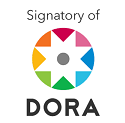Challenges and opportunities: evaluation of educational policies for flexible pathways in technological higher education
Abstract
The aim of this article was to systematically evaluate educational policies related to flexible educational pathways in different national contexts, identifying their strengths and weaknesses in order to propose policy improvements. A systematic review methodology was employed, analyzing 18 policy-related articles to provide a comprehensive view of their current status. The results revealed that, although flexible policies have improved access and equity, they have faced significant limitations, such as the lack of evaluation mechanisms and adequate resources. As a relevant conclusion, the development of clear and coherent policy frameworks was highlighted in order to prioritize student welfare, enriching the academic field and promoting more inclusive and effective educational practices in the future.
Downloads
References
Barua, L., & Lockee, B. (2024). A review of strategies to incorporate flexibility in higher education course designs. Discover Education, 3(127), 1-14. https://n9.cl/z7rfg0
Barua, L., & Lockee, B. B. (2025). Flexible assessment in higher education: A comprehensive review of strategies and implications. TechTrends, 69, 301-309. https://n9.cl/awd8f
Beer, C., Roy, S., & Ames, K. (2023). Is it really flexible? Examining definitions of flexibility against contemporary practice in online education. Journal of Further and Higher Education, 47(2), 255-264. https://n9.cl/gqo58z
Cowan, M. (2024). Flexible assessment: Some benefits and costs for students and instructors. Evaluación flexible: algunas ventajas y costes para estudiantes y profesores. Assessment & Evaluation in Higher Education, 49(3), 408-418. https://n9.cl/8ich3
El Galad, A., Betts, D., & Campbell, N. (2024). Flexible learning dimensions in higher education: aligning students’ and educators’ perspectives for more inclusive practices. Frontiers in Education, 9, 1347432. https://n9.cl/ov6qw
Infante, M., Isea, J., & Méndez, C. (2025). Desarrollo del pensamiento crítico a partir de la praxis dialógica en el aula universitaria. Revista Conrado, 21(105), e4697. https://n9.cl/ab0rj
Isea, J., Álvarez, G., Molina, T., & Romero, A. (2025). Estrategias para el desarrollo de competencias en la educación superior. Revista Conrado, 21(103), e4345. https://n9.cl/opqn9l
Isea, J., Gómez, I., & Comas, R. (2023). Interacción entre extensión universitaria e innovación curricular: una perspectiva colaborativa y co-creativa en la educación superior. Revista Conrado, 19(3), 469-481. https://n9.cl/jz6dwg
Isea, J, Romero, A., & Molina, T. (2024). Ontology of the university teacher: a transformational leader in lifelong learning. Health Leadership and Quality of Life [Internet], 3, 483. https://n9.cl/dhbk6
Liccioni, E. (2022). Politología y netnografía: Una alternativa para la investigación online en la educación superior. Jurídicas CUC, 18(1), 335-358. https://n9.cl/ylvfur
Lugo, M., Loiácono, F., Brito, A., & Ithurburu, V. (2022). Soluciones tecnológicas para la educación. Desafíos, oportunidades y brechas. Revista de Ciencias Sociales, 35(51), 13-32. https://n9.cl/chbou
Müller, C., Mildenberger, T., & Steingruber, D. (2023). Learning effectiveness of a flexible learning study programme in a blended learning design: Why are some courses more effective than others? International Journal of Educational Technology in Higher Education, 20(10). https://n9.cl/fgmkx
Poveda, D. & Cifuentes, J. (2020). Incorporación de las tecnologías de información y comunicación (TIC) durante el proceso de aprendizaje en la educación superior. Formación universitaria, 13(6), 95-104. https://n9.cl/tb75c
Romualdo, V., Ponce, R., Zelaya, H., Pérez, Y., & Rodríguez, S. (2025). Soportes y desafíos en las trayectorias de formación docente. El caso del Instituto Superior del Profesorado “Dr. Joaquín V. González” (CABA). Praxis educativa, 29(2), 335-355. https://n9.cl/rak2a
Ruiz, G. (2024). Políticas educativas para el fortalecimiento de sociedades democráticas en América Latina y el Caribe: desafíos, experiencias y estrategias innovadoras. Revista latinoamericana de estudios educativos, 54(3), 15-38. https://n9.cl/t5h4z4
Quispe, G., Quispe, S., Lescano, G., & Esquivel, C. (2024). Educación virtual y su impacto en la enseñanza - aprendizaje durante 2019-2022. EPISTEME KOINONIA, 7(13). https://n9.cl/yukm9u
Valles, H., & Parra, H. (2021). Análisis y diseño curricular para aumentar flexibilidad educativa. Revista de investigación educativa de la Rediech, 12, e1199. https://n9.cl/x0ukh
Varadarajan, S., Koh, J., & Daniel, B. (2023). A systematic review of the opportunities and challenges of micro-credentials for multiple stakeholders: learners, employers, higher education institutions and government. International Journal of Educational Technology in Higher Education, 20(13), 1-24. https://n9.cl/ayukjg
Zurita, F. (2022). Políticas públicas de educación superior en Chile en contextos de crisis: transformaciones y continuidades del sistema universitario entre la Dictadura Cívico-Militar y la Postdictadura (1981-2018). Education Policy Analysis Archives, 30(38), 38-38. https://n9.cl/dkglo
Copyright (c) 2025 Anita del Milagro Pajares-Paz

This work is licensed under a Creative Commons Attribution-NonCommercial-ShareAlike 4.0 International License.
LICENCIA DE CONTENIDO
Creative Commons
Atribución-NoComercial-CompartirIgual 4.0 Internacional (CC BY-NC-SA 4.0)
Política propuesta para revistas que ofrecen acceso abierto
Aquellos autores/as que tengan publicaciones con esta revista, aceptan los términos siguientes:
Usted es libre de:
Compartir — copiar y redistribuir el material en cualquier medio o formato
Adaptar — remezclar, transformar y construir a partir del material
La licenciante no puede revocar estas libertades en tanto usted siga los términos de la licencia
Bajo los siguientes términos:
Atribución — Usted debe dar crédito de manera adecuada, brindar un enlace a la licencia, e indicar si se han realizado cambios. Puede hacerlo en cualquier forma razonable, pero no de forma tal que sugiera que usted o su uso tienen el apoyo de la licenciante.
NoComercial — Usted no puede hacer uso del material con propósitos comerciales.
CompartirIgual — Si remezcla, transforma o crea a partir del material, debe distribuir su contribución bajo la lamisma licencia del original.
No hay restricciones adicionales — No puede aplicar términos legales ni medidas tecnológicas que restrinjan legalmente a otras a hacer cualquier uso permitido por la licencia.
DERECHOS DE AUTOR Y PERMISO
La revista permite que los autores tengan los derechos de autor sin restricciones.
La revista permite que los autores conserven los derechos de publicación sin restricciones; y garantizan a la revista el derecho de ser la primera publicación del trabajo.


















